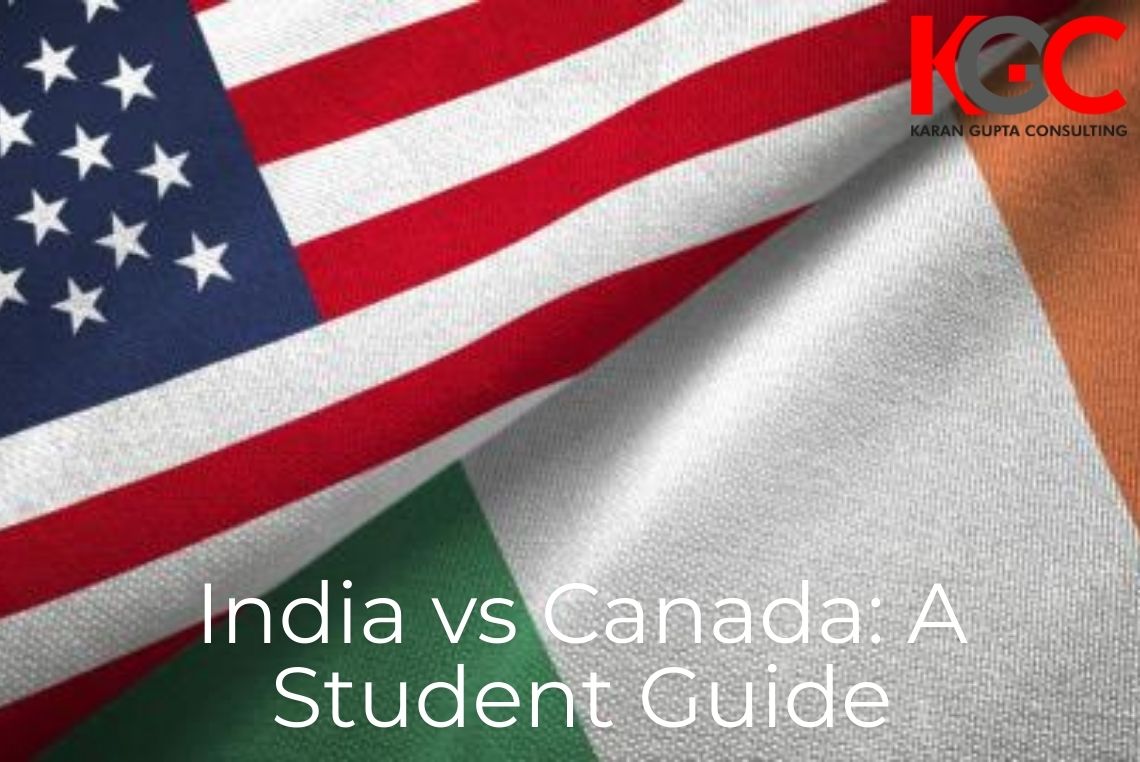- +91 22 23526372
- kgc@karangupta.com

Choosing between Canada and Ireland for higher studies can be overwhelming, especially when considering the vast range of courses offered in both countries. This section delves into the most popular academic streams in Canada and Ireland, providing insights into the courses available and their popularity among international students.
Stream |
Popular Courses |
|
Engineering |
Computer Science, Electrical Engineering, Mechanical Engineering |
| Business and Management | MBA, Finance, Marketing |
| Health Sciences | Medicine, Nursing, Pharmacy |
| Humanities and Social Sciences | Psychology, Sociology, English Literature |
Stream |
Popular Courses |
|
Engineering |
Computer Science, Electrical Engineering, Civil Engineering |
|
Business and Management |
MBA, Finance, Marketing |
|
Health Sciences |
Nursing, Pharmacy, Physiotherapy |
|
Humanities and Social Sciences |
English Literature, History, Philosophy |
Navigating the admission process for Canadian and Irish universities can be a complex task. This section outlines the general admission requirements for both undergraduate and postgraduate courses in both countries, including necessary qualifications, standardized test scores, and additional documents that may be required.
Undergraduate (UG) courses: Typically require a high school diploma with a minimum GPA and standardized test scores (e.g., SAT, ACT). Some universities may also require letters of recommendation and essays.
Postgraduate (PG) courses: Usually require a bachelor's degree with a minimum GPA and standardized test scores (e.g., GRE, GMAT). Some programs may also require work experience or interviews.
Undergraduate (UG) courses: Typically require a high school diploma with a minimum GPA and standardized test scores (e.g., SAT, ACT). Some universities may also require letters of recommendation and essays.
Postgraduate (PG) courses: Usually require a bachelor's degree with a minimum GPA and standardized test scores (e.g., GRE, GMAT). Some programs may also require work experience or interviews.
Financial considerations are a crucial factor when deciding where to pursue higher education. This section compares the tuition fees and living expenses for undergraduate and postgraduate students in Canada and Ireland, providing a clear overview of the costs associated with studying in each country.
Particulars |
Canada |
Ireland |
|
Tuition Fees |
Approximately CAD 15,000 - 35,000 per year |
Approximately EUR 10,000 - 20,000 per year |
|
Living Expenses |
Approximately CAD 15,000 - 20,000 per year |
Approximately EUR 12,000 - 15,000 per year |
Particulars |
Canada |
Ireland |
|
Tuition Fees |
Approximately CAD 20,000 - 40,000 per year |
Approximately EUR 15,000 - 25,000 per year |
|
Living Expenses |
Approximately CAD 18,000 - 25,000 per year |
Approximately EUR 13,000 - 17,000 per year |
Obtaining a student visa is a necessary step for international students wishing to study in Canada or Ireland. This section explains the visa application process for both countries, including the specific requirements and documents needed to secure a student visa.
Student Direct Stream (SDS): A faster application process for students from eligible countries.
Study Permit: Required for all international students.
Student Authorization: Required for all international students.
After completing their studies, many international students seek employment opportunities in the country they have chosen. This section highlights some of the most popular job sectors in Canada and Ireland, along with average salary ranges for various professions.
Job |
Canada Monthly Avg. Salary |
Ireland Monthly Avg. Salary |
| Software Engineer | CAD 6,000 - 8,000 | EUR 4,000 - 5,500 |
| Data Scientist | CAD 5,500 - 7,500 | EUR 3,500 - 4,500 |
| Accountant | CAD 4,500 - 6,000 | EUR 3,000 - 4,000 |
| Nurse | CAD 4,000 - 5,500 | EUR 2,500 - 3,500 |
For international students who wish to work in Canada or Ireland after graduating, obtaining a work permit is essential. This section provides information on the post-graduation work permit programs available in both countries, including eligibility criteria and the duration of these permits.
Post-Graduation Work Permit (PGWP): Allows graduates to work in Canada for up to three years.
Graduate Work Permit: Allows graduates to work in Ireland for up to two years.
Canada: Up to three years
Ireland: Up to two years
Ireland generally has a lower cost of living compared to Canada.
Both countries offer excellent MBA programs. Canada is known for its diverse range of programs and research opportunities, while Ireland offers a more intimate learning experience.
Ireland is generally cheaper to live in for international students.
